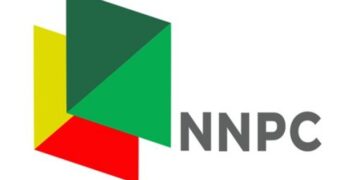The Nigeria Customs Service (NCS) has announced a record-breaking revenue collection of N1.3 trillion for the first quarter of 2025, more than double the N600 billion recorded during the same period in 2023.
Comptroller-General Bashir Adewale Adeniyi attributed this remarkable achievement to the transformative reforms implemented under President Bola Tinubu’s Renewed Hope Agenda.
Speaking ahead of the release of a State House documentary marking the President’s second anniversary, Adeniyi explained that the revenue surge came despite a decline in import volumes due to foreign exchange constraints.
“This growth is not from increased imports but from improved efficiency, transparency, and enforcement,” he said.
The NCS has intensified its anti-smuggling operations, recovering N64 billion from previously under-assessed imports and dismantling major smuggling rings at key border points including Seme, Idiroko, Katsina, and Sokoto.
Adeniyi revealed that the Service is preparing to launch the $3.2 billion E-Customs Modernisation Project, which will digitize cargo processing, surveillance, and payment systems across Nigeria’s ports and borders.
“This project will transition us from a manual, paper-based system to a fully digital service, projected to generate $250 billion in cumulative revenue over 20 years,” he stated. Additionally, the newly introduced Authorised Economic Operator (AEO) Programme is streamlining processes for compliant businesses, offering them faster clearance and reducing port congestion.
The NCS is also implementing the National Single Window initiative, a digital portal that will integrate all government agencies involved in cargo clearance.
“This will significantly reduce clearance times and costs,” Adeniyi said, noting that processing times at Apapa and Tin Can Island Ports have already dropped from 21 days to between 7 and 10 days for compliant importers.
In line with the government’s push for non-oil exports, the NCS has introduced fast-track lanes for agro-exports and is collaborating with the Nigerian Export Promotion Council (NEPC) to simplify outbound cargo processes. Last year, Nigeria exported over N340 billion worth of solid minerals and agro commodities through formal channels, marking a 38% increase from the previous year.
Adeniyi emphasized that the NCS is undergoing a significant internal transformation, with over 1,800 officers trained in advanced data analytics, risk profiling, and artificial intelligence.
“We are becoming an intelligence-led organization, aligning with global best practices,” he said. He credited President Tinubu’s clear directive to block revenue leakages, facilitate trade, and raise revenue without burdening Nigerians as the driving force behind these achievements.












































Discussion about this post